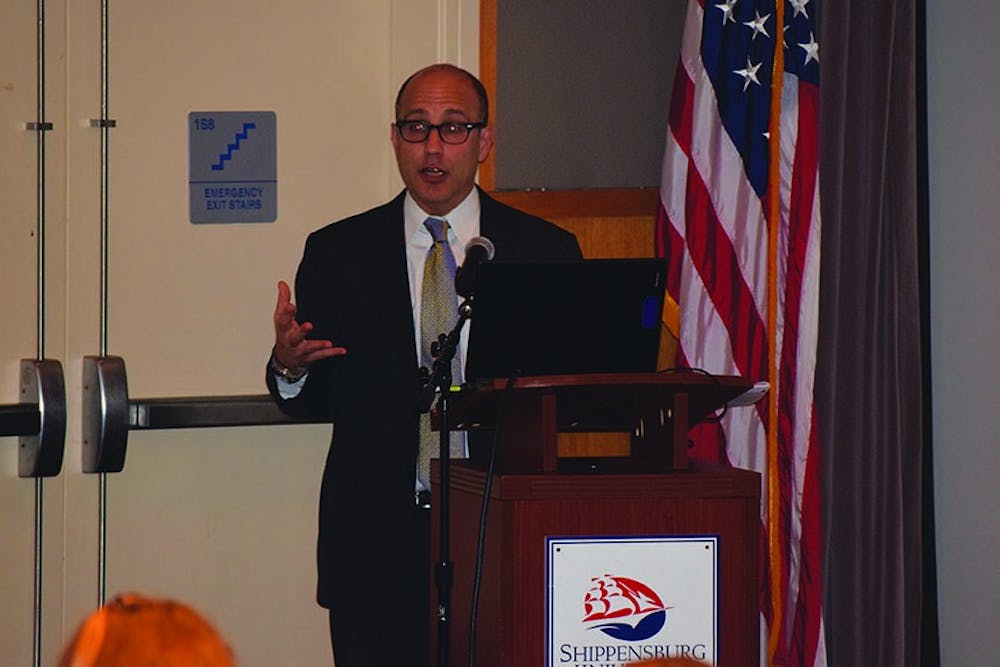Eric Rothschild shared his experiences as lead trial counsel during the Kitzmiller v. Dover Area School District trial on Thursday night in the Ceddia Union Building’s Orndorff Theater.
Rothschild is a senior litigation counsel at Americans United for Separation of Church and State. He began the lecture by giving some background about Charles Darwin and his theory of evolution.
Darwin published “On the Origin of Species” in which he explained his theory that there is no creator and everything was created naturally.
He also defined the term natural selection as organisms developing characteristics to make them more successful.
Darwin had this idea for a while, but he knew it would upset people. Finally, he published his theory in 1859. Eventually, schools would teach evolution and creation science as an excuse to create a religious structure in the classroom, according to Rothschild.
The Intelligent Design Movement was created so that evolution would not take over religious teachings. The Dover Area School District wanted to teach intelligent design in classrooms. In these classes, it was required for a statement to be read to students that Darwin’s theory was just a theory with some flaws that were unable to be explained.
Some teachers did not want to read the statements and would leave the classrooms, so administrators would have to take over and read it to students, according to Rothschild.
“We couldn’t have brought this lawsuit just because it was bad science, we had to have this constitutional promotion of religion,” Rothschild said.
Eleven parents came forward to represent eight families because they believed that this was not right. Rothschild explained the three steps of the trial process — expert testimony, cross examination, and discovery.
During the expert testimony section, there were experts on both sides of the case. They had to confront what each side had to say and offer a rebuttal. The subjects of common descent and paleontology came from the side of evolution, but the side of intelligent design offered no rebuttals.
In the intelligent design classes, students were required to read a textbook called “Of Pandas and People.” During the trial, it was proven that many parts of the book were false, and once again there was no rebuttal from the side defending intelligent design.
The second section was cross-examination. Rothschild was able to cross-examine the lead intelligent design expert, Michael Behe. The cross-examination addressed examples of how intelligent design was against weaknesses of evolution.
“In this instance, professor Behe had given us an incredible target because he said ‘There’s nothing. There’s no answers,’ and yet there was this incredible amount of scientific work done,” Rothschild said.
The final section was about discovery. Each side could get information from the other side through depositions, which are oral testimonies under oath.
There were many testimonies from school board members, and the judge was able to conclude that some of the witnesses were lying.
In the end, the judge ruled that creation and intelligent design are not methods of science. The case helped address the public controversy in a way that people could understand.
Rothschild concluded his lecture by providing examples of court cases that were successful in informing others on issues.


The Slate welcomes thoughtful discussion on all of our stories, but please keep comments civil and on-topic. Read our full guidelines here.